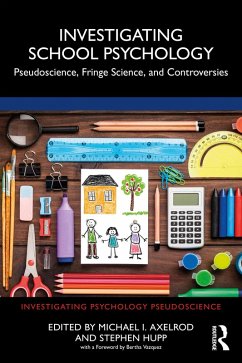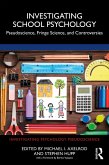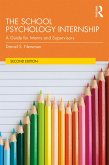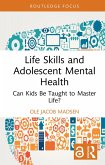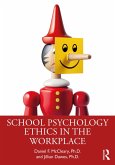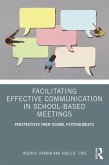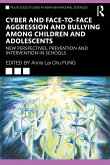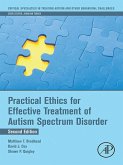School psychology and, more broadly, the field of education are particularly susceptible to pseudoscience, fads, and maintaining the status quo by resisting the adoption of new ideas. Using an exhaustive review of the current literature, this book discusses various concepts in school psychology that have been largely discredited and many practices that continue to exist with little to no scientific support. Each chapter helps differentiate between dubious and evidence-based approaches while providing a useful resource for practicing school psychologists and educators to distinguish between science and pseudoscience in their everyday work with children. The book's discussion of the harmful nature of pseudoscience in school psychology is inclusive of all students, such as students with disabilities, those diagnosed with neurodevelopmental disorders, those with academic problems, and all other children in schools.
Investigating School Psychology is valuable supplemental reading in undergraduate and graduate courses in education and school psychology and is also a beneficial reference for practicing school psychologists to distinguish between science and pseudoscience in their practice.
Dieser Download kann aus rechtlichen Gründen nur mit Rechnungsadresse in A, B, BG, CY, CZ, D, DK, EW, E, FIN, F, GR, HR, H, IRL, I, LT, L, LR, M, NL, PL, P, R, S, SLO, SK ausgeliefert werden.
Patrick Friman, PhD, ABPP Vice President of Behavioral Health, Boys Town; Professor of Pediatrics, University of Nebraska Medical Center, USA.
"Investigating School Psychology: Pseudoscience, Fringe Science, and Controversies offers a comprehensive yet easily digestible summary of the research refuting the most common and harmful myths in school psychology and education. Axelrod and Hupp have brought together leading scholars in the field to create an informative resource for anyone invested in our schools and the well-being of children. The book should be required reading for all policy makers in education."
Renee O. Hawkins, PhD, Director of the School of Human Services and Professor in the Ed.S. and Ph.D. School Psychology Programs at the University of Cincinnati, USA.

